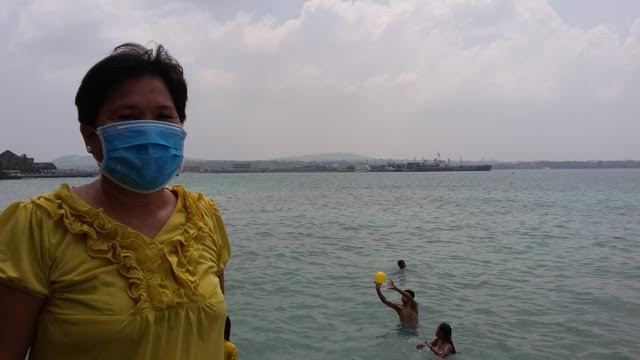TAGBILARAN CITY, Philippines — The operation at the Tagbilaran Airport in Bohol province returned to normal on Sunday after aviation authorities approved the resumption of flights.
The haze from Indonesian forest fires prompted airport authorities to cancel flights on Saturday due to poor visibility, stranding at least 1,200 passengers.
Haze is an atmospheric phenomenon where dust, smoke and other dry particles obscure the clarity of the sky, according to Hermes Hinlayagan, weatherman of the Philippine Atmospheric Geophysical and Astronomical Services Administration (Pagasa)-Bohol station.
Sunday’s haze in Bohol was not severe compared to that seen in previous days, he said.
Panglao Island and the mountains of Maribojoc town were still covered with haze as of Sunday, while the nearby Cebu island, visible from Tagbilaran, was still covered with thick smoke.
Hinlayagan said typhoon Lando (international name: Koppu) worsened the haze.
He, however, said that the seasonal northeast monsoon (amihan) would push away the thick smoke from Indonesia over the coming weeks.
“Hopefully, amihan will blow its way to the region to stir up the atmosphere and slow the haze. But we can’t say when the haze will go away soon,” he said.
Some residents here have started to wear masks after falling ill, which they say is caused by the haze hovering the city.
Ma. Galilea Arado, 49, was wearing face mask because she feared that the gray smoke shrouding the city would worsen her asthma.
“I am allergic to smoke and dust and I am afraid the haze could trigger my asthma,” said Arado. She also said she would wear the face mask until the haze’s disappearance.
Arlene Pesquira, 40, said she has been sick since last week.
“My eyes and throat have been irritated since last week, but I am not sure if it is due to the haze,” said Pesquira. She said that her daughter, Celian Janica, 12, has been coughing since Friday when haze blanketed the city.
The Department of Health (DOH) explains on its official Facebook account that the haze carries dust particles that can contaminate the air and cause itchy eyes, dry throat and cough, sneezing and allergy.
The DOH advises the public to stay indoor with good ventilation, wear appropriate dust masks when going outside the house, refrain from physical activities in heavily polluted areas and consult a doctor if there is difficulty in breathing, cough, chest pain, increased tearing of the eyes, and nose or throat irritation. SFM
